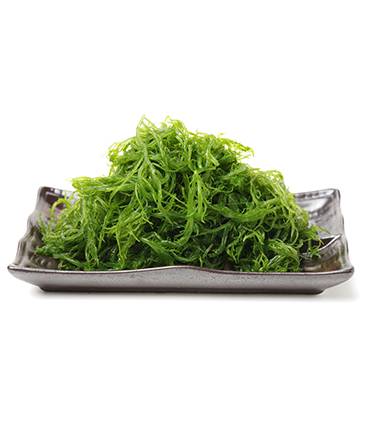
Laminaria japonica

Latin name :
Laminaria japonica J.E. Areschoug
Common Names :
Makombu, Kombu
Family :
Laminariaceae
Origin :
Japan
Part of the plant used :
Whole seaweed
Description
This brown seaweed of the Laminariaceae family grows in the cold waters off the island of Hokkaido in northern Japan. Formerly reserved for the emperor, Laminaria japonica, also known as kombu, is rich in iodine, a trace element essential for the synthesis of thyroid hormones.
In addition, the wall of this brown alga is made up of polysaccharides, some of which are sulphated, such as fucans, which include fucoidan and also laminarin. These polysaccharides have immunostimulant properties and therefore help to strengthen the immune system, enabling the body to defend itself better, particularly in the event of a viral attack.
Moreover, these fucans also play an antioxidant role by stimulating the activity of certain enzymes capable of preventing the production of free radicals, unstable molecules responsible for oxidative stress.
In addition, in vivo studies have shown that fucoidans have antithrombotic and anticoagulant effects. Laminaria japonica also contains alginate, a fibre that helps eliminate heavy metals.
The benefits
Kombu, Laminaria japonica, contains immunostimulant polysaccharides.
Scientific publications
Laminaria japonica is the subject of more than 359 scientific publications.
- Cox A.J. et al., Fucoidan supplementation restores fecal lysozyme concentrations in high-performance athletes : a pilot study. Marine Drugs.2020,18,412.
Our products based on Laminaria japonica
-
€131.90
-
As low as €56.40In stock












